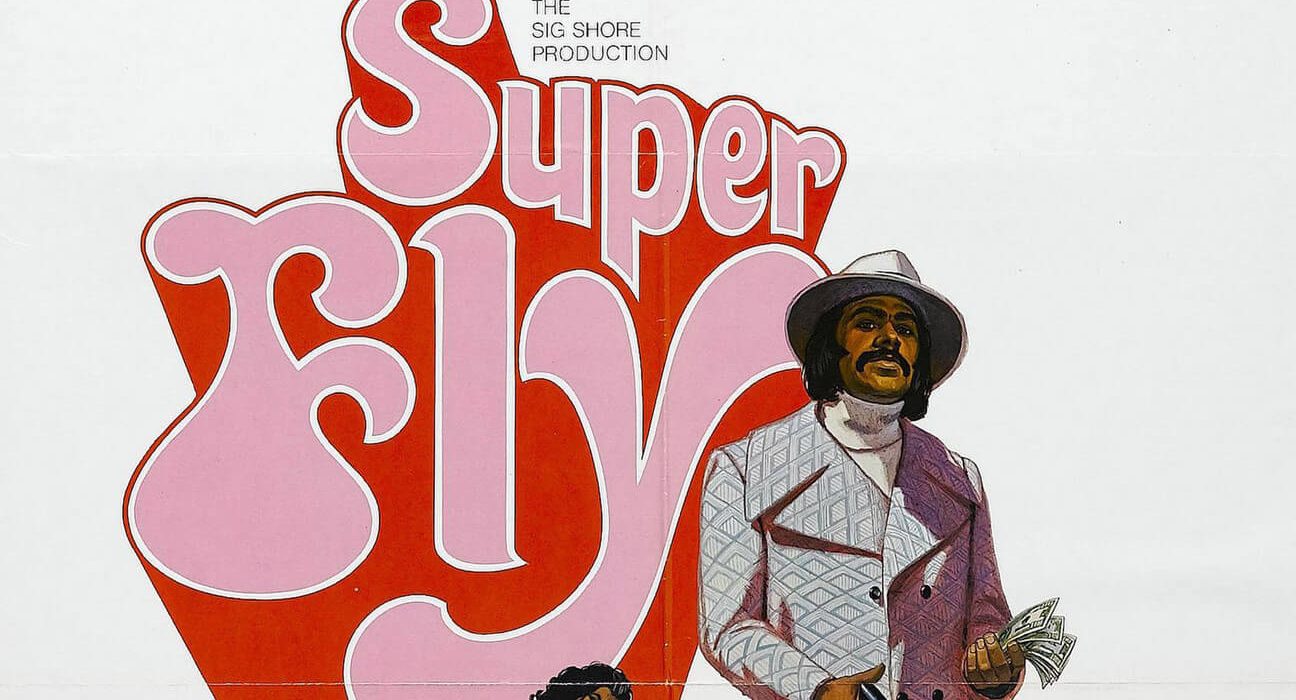Starring: Ron O’Neal, Carl Lee, Julius W. Harris and Sheila Frazier
Rated: R Action/Crime/Drama
Superfly, along with Sweet Sweetback’s Baadassssss Song (1971) and Shaft (1971), is considered to have “birthed” the Blaxploitation film genre. It is the story of Youngblood Priest (Ron O’Neal), a dope dealer in Harlem who wants to quit “The Game” of hustling; it is hectic, cutthroat and deadly.
Although he dreamed about living a luxurious lifestyle as a child, he is urgently seeking to live a better life before the negative consequences of his “career” choice lead to his downfall, worse still, his death.
Priest devises a plan to sell thirty kilos of cocaine and with the $1,000,000 profits, intends to start a new life. However, the only way he can get that large amount of product is to call on his mentor, Scatter (Julius W. Harris), who has retired from drug dealing and has become a club owner. Priest discusses his plan with his best friend and business partner, Eddie (Carl Lee), who famously (heartbreakingly, to me) quipped, “You know … you got this fantasy in your head of getting’ out of the life and settin’ that other world on its head. What the f*ck are you gonna do … except hustle?!”
Eddie and Scatter eventually concede to the desperate plea of Priest; Eddie, because of the forthcoming wealth and Scatter, because of his fatherly affection for Priest. However, all things cannot be anticipated, especially when Priest has become such a success and asset for Scatter’s former employer, an anonymous kingpin. Add small-time hustlers, thieves, a lover who wants him to continue to deal in order to supply her and her friends and corrupt cops, the chances of Youngblood Priest safely leaving his lifestyle turns more deadly. Only his girlfriend, Georgia (Sheila Frazier), who does not share in his illicit lifestyle, believes in his ability to be a greater person. In order for his plan to work, he is going to have to hustle smarter and be more “fly” than his opponents … Priest is going to have to be “superfly”!
Superfly, filmed with a budget of less than $50,000 (USD) has earned greater than $30,000,000 (USD) to date. With its 1972 release, its $4,000,000+ profit showed that it had been a hit to viewing audiences. Despite opposition from Black civil rights groups, most notably, the Beverly Hills chapter of the National Association for the Advancement of Colored People (NAACP), as well as from trained Black actors led significantly by Ivan Dixon (Nothing But a Man), the film was such a hit, that many Blacks wanted to emulate the flashy lifestyle shown onscreen. In fact, the next day after opening in Harlem, men were in beauty salons, wanting their hair to be straightened like the character Priest. Ironically, the Shakespearean-trained actor Ron O’Neal wore a hairpiece, as he had begun balding.
The irony didn’t stop there. In 1971, the NAACP protested Superfly because they felt the film promoted negative images of Blacks, such as drug dealers, addicts, robbers, pimps and murderers, and it celebrated the destruction of Black life.
Almost 20 years later, the organization “honored” these themes, as presented in New Jack City, when its Image Award was given to actor Wesley Snipes for his portrayal of “Nino Brown”, also a druglord in Harlem. This is more than a sign of changing times and a bit hypocritical for the NAACP to award Snipes for portraying such a nefarious character who never wanted to leave the deadly lifestyle he lived and imposed on others. The reasons supporting the outcry of the civil rights organization in 1972 were not heard or felt as loudly in 1991. Many young Black adults would experience terrible repercussions in attempting to replicate the “hood wealth” created by the gangster lifestyle that was propagated in New Jack City.
Superfly was produced by Sig Shore, who starred as “Commissioner Riordan” in the film, and directed by Gordon Parks, Jr., whose father, legendary photographer & filmmaker, Gordon Parks, Sr., partially funded the film. The Superfly soundtrack, composed, arranged and orchestrated by Curtis Mayfield, further propelled the movie to a type of Blaxploitation film immortality. Many parts of the soundtrack’s songs have been sampled and some covered in contemporary hip-hop and R&B, including in “Intro” of the Notorious B.I.G., “I’m Your Pusher” by Ice-T (who also starred in New Jack City); “I’m the Only Woman” by Mary J. Blige; and “That Way” by Wale, Jeremih and Rick Ross. It even has a track that has been remixed by Grammy Award-winning deejay and producer “Little Louie” Vega.
Because of the success of Superfly, a follow-up, Superfly T.N.T. (“T’aint Nuthin’ To It”) was released in 1973. Directed by Ron O’Neal, it was filmed in Rome, Italy to further support the film’s theme of Priest trying to improve his life. Sig Shore, who produced Superfly, produced and directed The Return of Superfly (1990). None of the original actors was involved, although it centered on the main character, Youngblood Priest, who has returned to the United States years later after learning a friend has been murdered. In 2018, a modern remake of Superfly was released and it starred Trevor Jackson, Jason Mitchell, Michael K. Williams and Lex Scott Davis. None of the sequels and or the remake achieved the relative commercial, critical and cultural success as the original Superfly.

